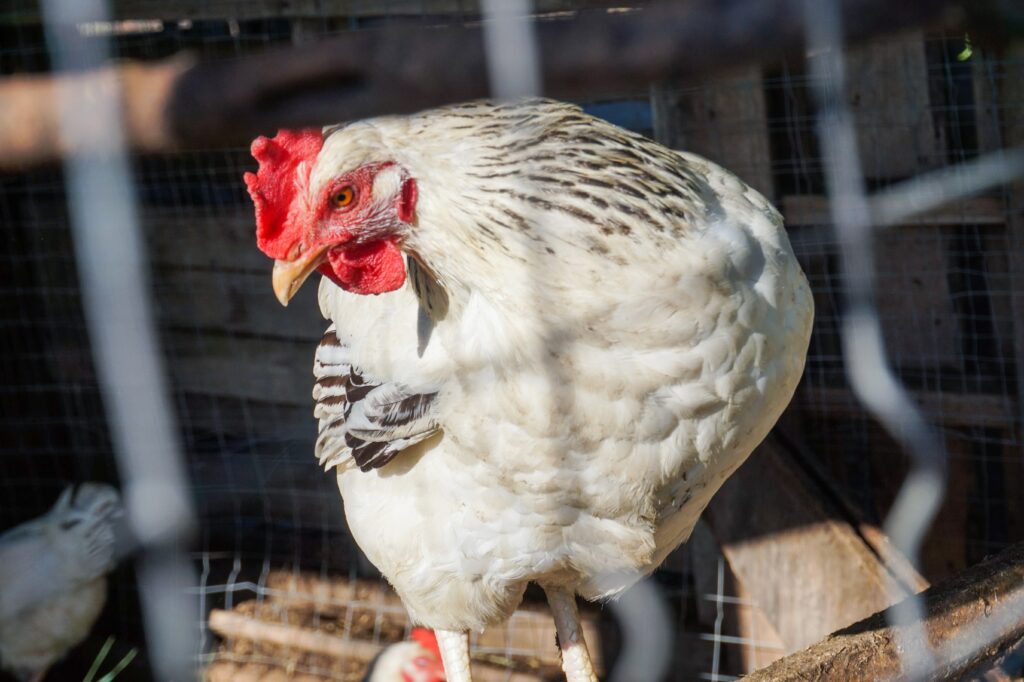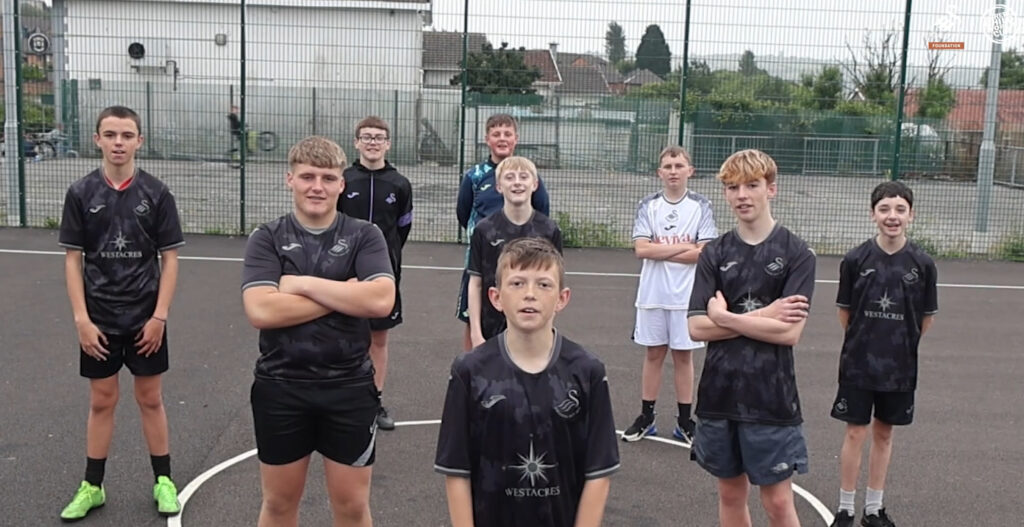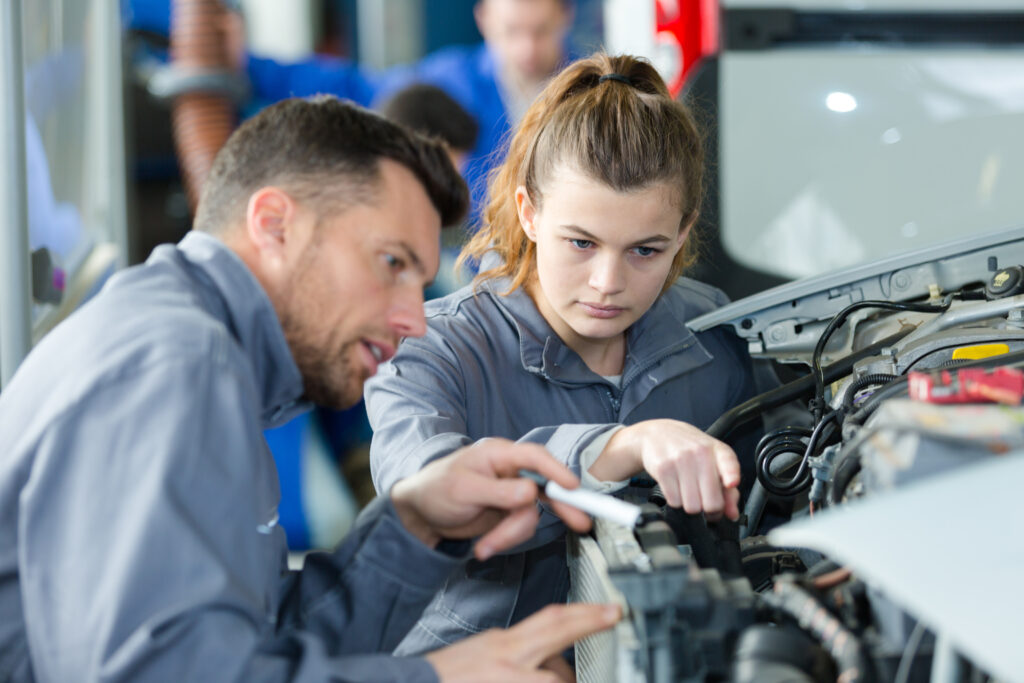Intensive Poultry Units raise complex challenges for campaigners against river pollution, Jane Powell argues.
A public demonstration against intensive poultry units (IPUs) outside the Senedd on 15 February was just the latest eruption of public concern over the pollution of the Wye, Severn and their tributaries, which is blamed on the explosion of intensive poultry farming in Powys over recent years.
This demonstration was organised by grassroots community group Sustainable Food Knighton who successfully brought a case against Powys County Council in 2020 after they gave permission for a new poultry unit without proper consideration of the environmental impact. The event brought together a range of concerns.
River pollution was the primary focus of campaigner Angela Jones with her ‘Death of the Wye’ coffin. Nutrients from livestock manure and fertiliser running into rivers cause algal blooms followed by a serious loss of biodiversity, and it’s not just IPUs. Dairy farming, horticulture and sewage are also implicated.
For others, animal welfare is the problem. Chickens are bred to grow muscle so fast that their development is adversely affected, causing health problems from obesity to lameness. Meanwhile large numbers of birds crowded together create ideal conditions for incubating avian flu.
Also speaking at the event was the charity Size of Wales, pointing out the link between the demand for soya to feed chickens (and other livestock) and the destruction of rainforest in the Amazon basin.
The bigger question is how we feed ourselves without destroying the natural world of which we are part.
As anger about river pollution mounts, recently highlighted by the BBC’s Our Troubled Rivers reports, it starts to look like the government – whether London or Cardiff – isn’t working. But what exactly is the situation in Wales?
The first line of attack is government regulator Natural Resources Wales (NRW), which has the power to punish polluters. It is also required to act preventatively, working alongside farmers to reduce the loss of excess nutrients from slurry and fertiliser, and running restoration projects such as the Four Rivers for Life, which is focused on the Teifi, Cleddau, Tywi and Usk.
NRW’s work is prescribed by the Environment (Wales) Act of 2016 which, among other things, requires all public authorities to ‘maintain and enhance’ biodiversity in all relevant decisions. But NRW lost 35% of its funding from 2013 to 2020 and has been criticised for its ineffectiveness. Losing staff, and their expertise, has weakened the relationships with both farmers and environmental campaigners that can make such a difference.
The pollution of Welsh rivers speaks for itself. Worse, in the absence of effective regulation, we see arguments and blame. Farming and sewerage compete pointlessly with each other for pollution rights, leaving residents with a choice between more housing, producing sewage, or another dairy unit, producing animal manure.
Sewerage and farm effluent are dealt with through different routes, but both are part of the same problem, separated only by the length of the human alimentary canal. The bigger question is how we feed ourselves without destroying the natural world of which we are part.
They require a joined up solution. One example is nutrient trading, which would mean that a housing developer could purchase credits from farmers who could prove that they had achieved a given reduction in nutrient pollution. This has been proposed as a solution in Pembrokeshire.
The Welsh government at its recent summit on river pollution, acknowledging the need for work across sectors, has launched an action plan. It has also committed extra funding to NRW to support its enforcement of agricultural regulations – and thus allow new houses to be built. But progress is painfully slow. And what of the Well-being of Future Generations Act of 2015, for which Wales is now famous?
Food activists regularly ask why the Act does not put a brake on IPU development, and with some justification. The seven goals of the Act include health and global responsibility, for instance, which meet river pollution and rainforest destruction head on.
It is also questionable whether a business model where a single company, Avara Foods, dominates the poultry supply chain, supplying the chicks and their feed and selling the final product to supermarkets, is good for the Welsh food sector. A large share of the profits leave Wales, and farmers are in a weak position – hardly contributing to a ‘resilient Wales’, another of the well-being goals.
But the Act is not straightforward. In a written statement, new Future Generations Commissioner Derek Walker explained that his office could not take action upon individual concerns, including planning applications for IPUs. This is because – quite rightly – the Act seeks to create a shared sense of responsibility through collaboration and involvement with stakeholders, and must respect differences of opinion.
The problem seems to be that the collaboration and consultation which the Act requires takes far more time and energy than is available
Nevertheless, he recognises public concern, saying: ‘The increase in some intensive farming practices is one of many serious and direct threats to our rivers in Wales, which are deteriorating at an alarming rate,’ and expressed concern that ‘not enough action is being taken to understand the cumulative impacts of IPUs and prevent damage to our rivers.’
He goes on to promise future projects which will look in depth at contentious issues such as these. Meanwhile, Sustainable Food Knighton found that the Act – and Powys council’s declaration of climate emergency (16 out of 22 councils had made one by early 2022) – made no difference to their case.
The problem seems to be that the collaboration and consultation which the Act requires takes far more time and energy than is available, and so its visionary thinking does not make it through a log-jam of technical procedures.
Specifically, the Act requires all Public Services Boards (on which the local authorities and other public bodies sit) to produce Well-being Plans on which the public can comment.
It is here that we might insist that all farming and countryside developments should significantly restore biodiversity, not merely maintain it. Then local authorities, who would be legally bound by this as well as by the advice handed down from Planning Policy Wales, could block unsuitable applications.
Well-being Plans would go far beyond IPUs and other farming practices of course. They would also need to cover council procurement policies, so that they do not refuse local poultry units while serving cheap chicken from Thailand in school dining rooms.
And they would above all focus on the roots of the problem, considering the need of farmers to make a living through producing high quality food in ways that regenerate soil and ecosystems, and balancing that with the need for affordable and healthy food for all.
Gofod i drafod, dadlau, ac ymchwilio.
Cefnogwch brif felin drafod annibynnol Cymru.
Partnership projects like Our Food 1200 show what can be done. This social enterprise aims to secure 1200 acres of land across the Brecon Beacons, South Powys and Monmouthshire for small-scale farms that grow fruit and vegetables for local people, while regenerating biodiversity and drawing young people into food production.
In practice, though, the consultations on local Well-being Plans have been ineffective and widely ignored. They tend to be high-level and abstract, making little reference to actual activities that might engage the public. How might they do better?
One approach would be to use the government’s forthcoming Community Food Strategy to strengthen the role of the PSBs. There is much that local authorities could do to improve food systems in their areas, as the Community Land Advisory Service’s Lucie Taylor neatly describes.
By bringing together different sectors to listen to and understand each other, we can begin to untangle complex problems like river pollution and food poverty.
This strategy has been held up by the draft Food Bill which is making its way for the Senedd and similarly calls for integrated action on food, delivered nationally through a Food Commissioner.
Then there are the local food partnerships, which began with Food Cardiff and are now being replicated across Wales with government support via Food Sense Wales, bringing together local authorities, health boards, community groups and business to create food plans.
These partnerships have created a space in which to prototype new models of food trading, for instance getting agroecologically grown vegetables into Cardiff schools. They could in time mobilise communities to take more control of the food they produce and eat, generating a much-needed sense of agency.
Linked to the food partnerships is a movement for deliberative democracy and co-design that is making itself felt across Wales. By bringing together different sectors to listen to and understand each other, we can begin to untangle complex problems like river pollution and food poverty.
While the Welsh government does its best – nobody could argue with the good intentions behind the Future Generations and Environment Acts – it is not going to be able to solve our problems on its own. Civil society must mobilise around our public services and make the connections that are missing.
Step forward the plethora of charities, NGOs, farmers and other concerned citizens who have been working to understand river pollution and push for solutions, notably Afonydd Cymru and CPRW. There is no shortage of commitment or creativity here. But there is growing impatience.
‘The Welsh government is failing to respect its own laws on protecting and increasing biodiversity, preventing pollution of soil and water, and it’s not putting sufficient money and resources into nature and planet-friendly farming,’ says Camilla Saunders of Sustainable Food Knighton. ‘It seems to lack the political will to take hard decisions’.
That is the challenge to the Future Generations Commissioner’s office. Can it break the log jam?
All articles published on the welsh agenda are subject to IWA’s disclaimer. If you want to support our work tackling Wales’ key challenges, consider making a donation or becoming a member.
This article was edited by Kaja Brown thanks to the Books Council of Wales’ New Audiences Fund.





